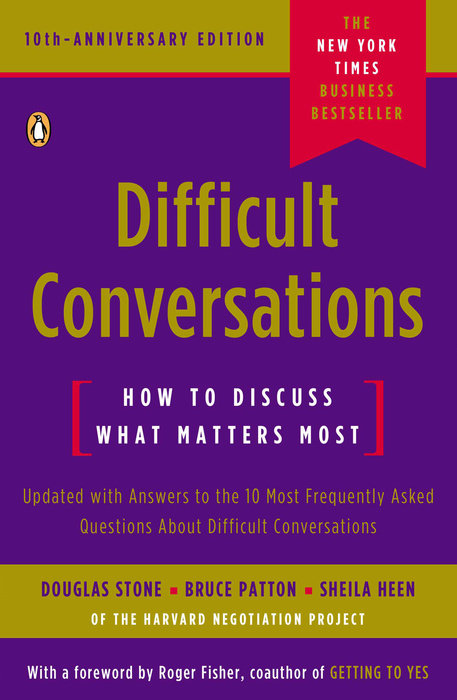

How can you assess whether you’re making a strategic choice to avoid a difficult conversation or just chickening out? Here are 11 questions designed to help you consider what to say, delay, or skip: Not every conversation needs to be had immediately, had by them, or had at all.

But sometimes, in doing this work, we discover that their avoidance instincts are actually valid. In my role as an executive coach, I often help clients overcome their hesitation and anxiety so they’re able to handle tough but important conversations in the right way.
#Sheila heen difficult conversations how to
And, while 80% of respondents reported that these conversations were a part of their job, more than half indicated that they didn’t feel like they had adequate training on how to conduct them effectively. In a 2013 Globis survey of more than 200 professionals on the topic of difficult conversations, 97% of respondents said they were concerned about the associated levels of stress for the other person, 94% were worried about damaging the other person’s self-esteem, and 92% were fearful of causing upset. But if we confront the problem, we may be rejected or attacked, we might hurt the other person in ways we didn’t intend, and the relationship might suffer.”

As Douglas Stone, Bruce Patton and Sheila Heen explain in their book, Difficult Conversations, this internal struggle is natural: “If we try to avoid the problem, we’ll feel taken advantage of, our feelings will fester . and we’ll rob the other person of the opportunity to improve things. And yet, no matter how skilled or experienced they are at it, most would also do anything to find a way out. Leaders know that they’ll occasionally need to give tough feedback to their employees, colleagues, and clients.


 0 kommentar(er)
0 kommentar(er)
